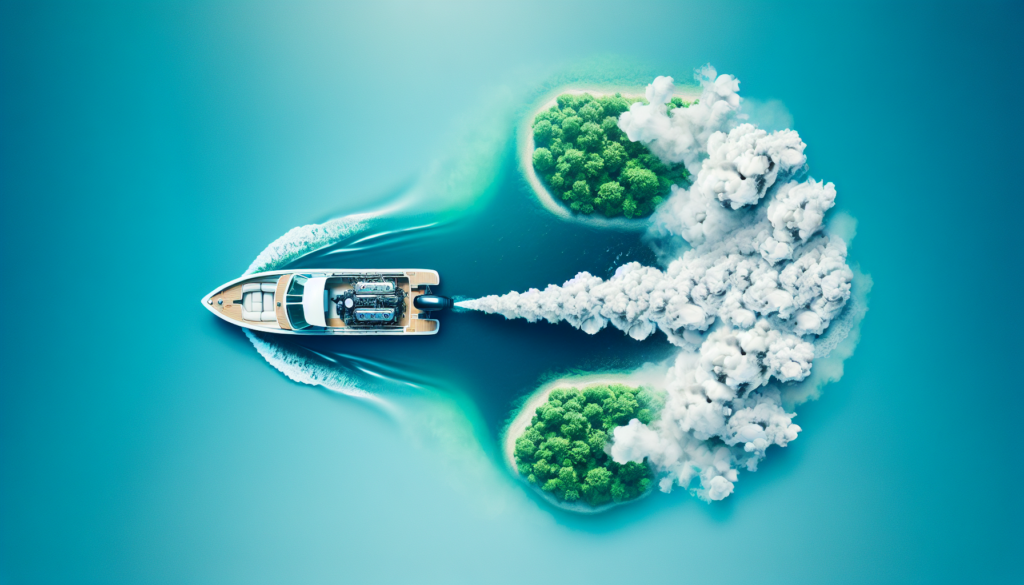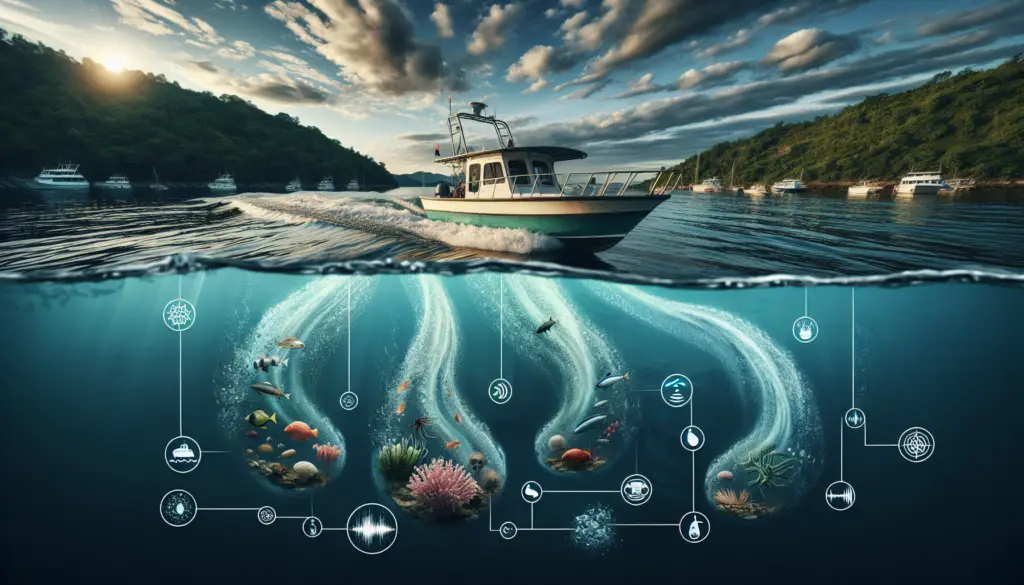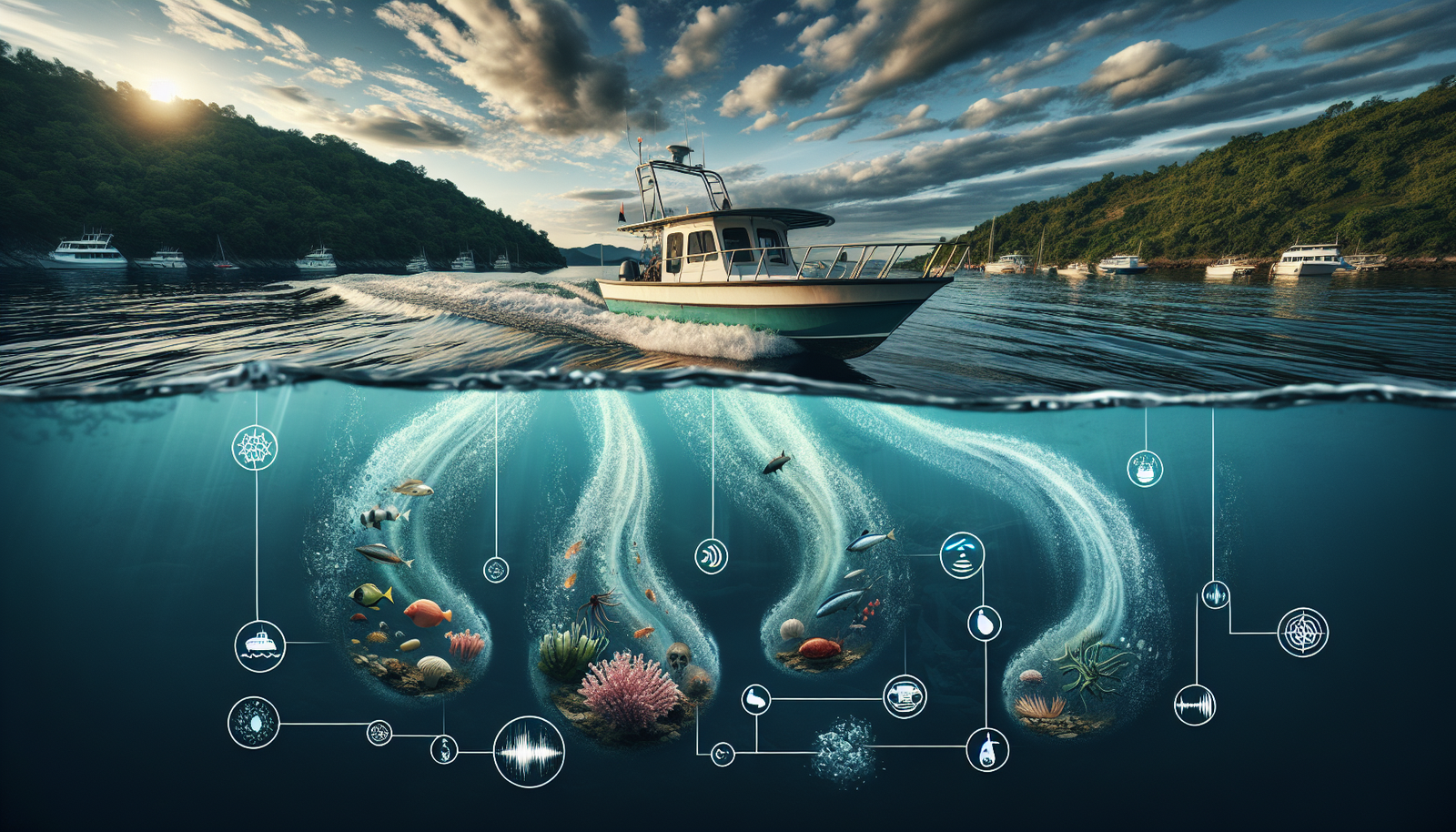You step out onto your vessel, the salt air filling your lungs as you prepare for a peaceful day out on the water. But could your leisurely sailing or motorboating actually be causing harm to the environment you hold dear? That is exactly what we are going to discuss in “The Environmental Impact Of Boat Engines: What You Need To Know”, as we explore the often overlooked effects that boat engines can have on our planet. Get ready to acquire knowledge regarding the not-so-pleasant consequences of these marine engines and what you can ideally do to reduce the overall impact.

Understanding Boat Engines
The operation of a boat and its ability to move smoothly through water bodies relies significantly on the state of its engine. Like the heart of a living organism, the engine is the heart of a boat and it plays a fundamental role in the boat’s performance.
The basics of boat engines
The boat engine, also known as a marine engine, is designed specifically for use in the aquatic environment. It’s a bit different compared to the ones found in vehicles due to the different conditions in which they operate. Essentially, the purpose of a boat engine is to transmit power to the propellers which then push the boat forward.
Types of boat engines
There are multiple types of boat engines, and the most commonly used are the outboard, inboard, and the inboard/outboard (also known as stern drives). Each of these types has its own unique characteristics, and your choice ultimately depends on the particular needs of your boating activities.
How boat engines work
Boat engines work mainly by converting the energy from fuel into mechanical energy through a series of explosions. This energy is then transmitted to the propellers to propel the boat. It’s quite a complex mechanism, but it’s fascinating once understood.
Air Pollution from Boat Engines
Boat engines, like many other mechanical systems, release emissions that contribute to air pollution. It is a question of environmental concern which needs to be addressed.
Exhaust emissions from boat engines
Combustion engines, including those in boats, produce exhaust emissions when burning fuel. These emissions include a variety of pollutants that can be harmful to both human health and the environment.
Types of air pollutants from boat engines
The principal air pollutants emitted by boat engines are carbon monoxide, nitrogen oxides, hydrocarbons, particulate matter, and sulphur dioxide. Each of these pollutants poses their own set of risks to the environment and living organisms.
Impact on air quality
These emitted substances have a significant impact on air quality. They can contribute to the formation of smog and ground-level ozone, which are harmful and worsen air quality.

Water Pollution from Boat Engines
Water pollution from boat engines is another crucial aspect that needs addressing. This is due to the immediate contact that boats have with water bodies.
Possible leaks and spills from engines
Leaks and spills from boat engines pose a significant threat to water quality. There is a risk of substances such as oil, fuel and coolants leaking into the water, which can be harmful to marine life.
Effect of engine discharge on water bodies
Oil and fuel from boat engines don’t just disappear into nothing when they enter the water. They contribute to the overall pollution load. These discharges can damage the water’s physical and chemical properties, hindering its ability to sustain life.
Impact on aquatic ecosystems
Such contamination jeopardizes the health of aquatic ecosystems. It influences their biodiversity and could lead to the death of aquatic organisms. It can also result in the accumulation of toxic compounds in the food chain.
Boat engines and oil spills
In cases of severe engine damage or negligence, oil spills can occur. Such incidents have proven to be devastating to marine environments, causing long-lasting and far-reaching effects.
Noise Pollution from Boat Engines
While less apparent, noise pollution from boats can have a significant impact on marine life.
Sources of noise from boat engines
The constant roar of the boat engine, the buzzing of propellers and the sounds of water collision all contribute to underwater noise pollution.
Impact on marine life
This noise can have devastating impacts on marine species. It can affect their communication, navigation, reproduction, and even their survival.
Noise control in boat engines
Some measures are taken to reduce this source of pollution, such as using quieter engines and propellers, or limiting boat traffic in certain areas.

Carbon Footprint of Boat Engines
Boat engines, like many other combustion engines, leave a carbon footprint. They contribute to the emission of greenhouse gases in the atmosphere which influence climate change.
Understanding carbon emissions from boat engines
Whenever a boat engine burns fuel, it emits carbon dioxide—a greenhouse gas directly linked to global warming.
Comparison with other modes of transportation
While boats may seem to be minor contributors compared to road and air transport, their environmental impact should not be undermined. One large cargo ship, for instance, can emit as much carbon dioxide as thousands of cars.
Strategies for reducing carbon footprint
Several strategies can be adopted to reduce the carbon emissions from boat engines. These include optimizing the engine’s efficiency, using cleaner fuels, and adopting new technological advancements.
Impact of Boat Engines on Climate Change
Boats and ships have their role to play in global climate change.
Emission of greenhouse gases
With burning of fuel, boat engines emit greenhouse gases like carbon dioxide and methane. These gases contribute to the warming of our planet by trapping heat in the Earth’s atmosphere.
Role in global warming and climate change
Through these greenhouse gas emissions, boat engines inadvertently help escalate global warming and expedite changes in our climatic patterns.
Effects on oceanic climate patterns
Changes in oceanic climate patterns can be triggered by these emissions, leading to phenomena like rising sea levels, alteration of currents, and ocean acidification.

Regulations and Standards for Boat Engines
In light of these environmental implications, various regulations and standards are set to control the emissions from boat engines.
Existing environmental regulations
Across the globe, countries have established environmental regulations to control marine pollution, which includes specific rules related to boat engines.
Emission standards for boat engines
These regulations often include emission standards that boat engines must comply with. Such engine standards ensure that newly manufactured engines meet specific emission limits.
Enforcement and compliance
Regulatory bodies are in place to enforce these standards and ensure compliance. Penalties are imposed for those who fail to meet the standards.
Technological Advancements and Eco-friendly Boat Engines
Innovation plays a key part in fighting boat induced pollution.
Innovations in boat engine technology
Several innovative technologies are being developed to make boat engines more efficient and less polluting—from advanced fuel injection systems to the use of alternative fuels.
Introduction of eco-friendly boat engines
Eco-friendly boat engines are being introduced in the market. This includes electric boat engines, engines that run on biofuels, and even ones that rely on solar power.
The feasibility of electric and hydrogen boat engines
Electric and hydrogen engines are considered to be the future of marine propulsion. They release no emissions and are thus environmentally friendly, though their application in bigger vessels is currently limited due to power requirements and infrastructure constraints.
Importance of Maintenance for Reducing Environmental Impact
Boat engine maintenance is another critical part to reduce environmental impact.
Role of regular maintenance
Regular maintenance of boat engines helps ensure they operate at optimal efficiency and reduce their overall environmental impact.
Impact of maintenance on emission levels
Properly maintained engines are more likely to burn fuel completely, thereby reducing harmful emissions.
Prevention of oil spills and leaks through regular checks
Regular checks can also identify and repair potential leaks or damages, preventing oil spills and discharges.
Conscious Boating: Individual Contributions to Genial Environment
Conscious involvement on part of individual boat users can make all the difference.
Tips for eco-friendly boating
These can range from simple measures such as not dumping waste overboard, to more elaborate steps like using less-polluting fuels and reducing engine noise.
Choosing a green boat engine
Opting for a green boat engine, one that is more fuel-efficient or uses cleaner energy, is also a great way to reduce your boating impact on the environment.
The importance of individual actions in environmental protection
Collectively, the actions of individual boaters can add up to significant benefits for the environment. Your unique contribution matters.
Boat engines may seem like a small piece in the broader environmental puzzle. However, understanding their impacts and addressing the associated environmental issues is crucial in our fight against environmental degradation and climate change. By making conscious choices and embracing positive change, we can all contribute to a cleaner and more sustainable planet.

